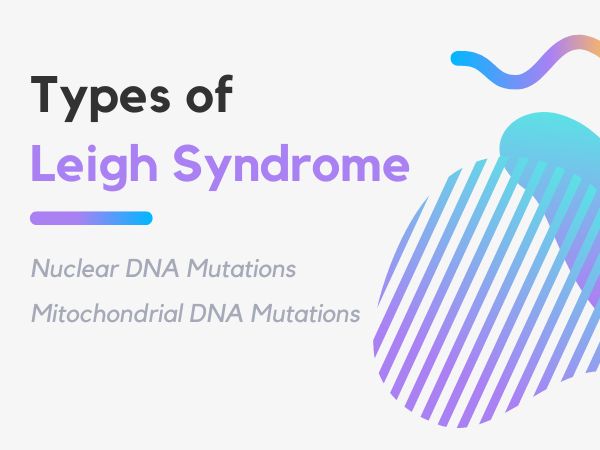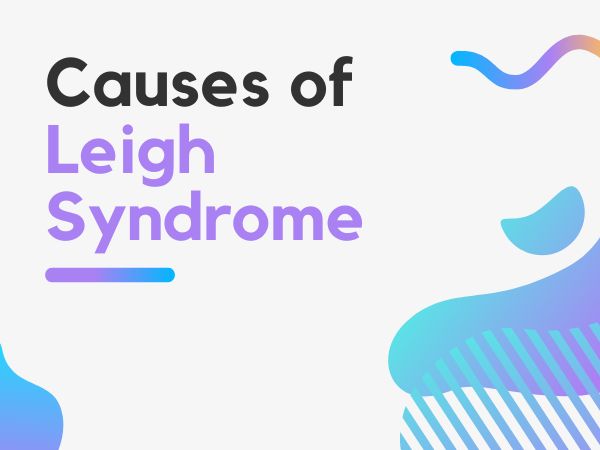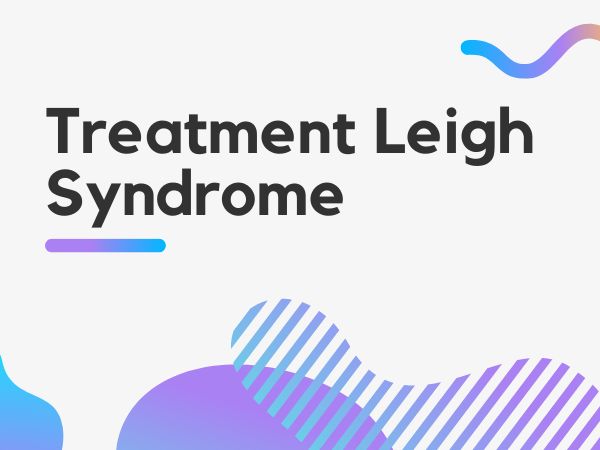Leigh syndrome, also known as subacute necrotizing encephalomyelopathy, is a rare, inherited, progressive neurological disorder that primarily affects infants and children. Named after the British neuropathologist Dr. Denis Leigh, who first described the condition in 1951, Leigh syndrome is characterized by progressive degeneration of the central nervous system. Understanding its types, symptoms, causes, treatment, and prevention is crucial for managing this challenging condition.
Types of Leigh Syndrome

Leigh syndrome encompasses various genetic mutations affecting mitochondrial function, crucial for energy production in cells. The types include:
- Nuclear DNA Mutations: These mutations occur in nuclear DNA, which accounts for most genetic material. Various genes, including SURF1, NDUFV1, and others, are implicated in Leigh syndrome.
- Mitochondrial DNA Mutations: Mitochondrial DNA (mtDNA) mutations affect the DNA located within mitochondria, the energy-producing organelles within cells. The most common mutation associated with Leigh syndrome is m.8993T>G.
Signs and Symptoms

The signs and symptoms of Leigh syndrome typically emerge in infancy or early childhood and may include:
- Poor sucking ability and failure to thrive
- Delayed development
- Loss of previously acquired motor skills
- Weakness
- Muscle stiffness
- Seizures
- Respiratory difficulties
- Optic atrophy
- Movement disorders
Causes of Leigh Syndrome

Leigh syndrome is primarily caused by defects in mitochondrial function, disrupting the body’s ability to produce energy efficiently. Mutations in nuclear DNA or mitochondrial DNA can impair the function of enzymes and proteins involved in energy metabolism, leading to the characteristic neurological degeneration seen in Leigh syndrome.
Diagnosis
Diagnosing Leigh syndrome involves a combination of clinical evaluation, neuroimaging studies (such as MRI), and genetic testing to identify mutations in nuclear DNA or mitochondrial DNA associated with the condition. Blood tests, urine tests, and muscle biopsies may also be performed to assess mitochondrial function.
Treatment of Leigh Syndrome

Unfortunately, there is no cure for Leigh syndrome, and treatment focuses on managing symptoms and providing supportive care. Treatment strategies may include:
- Medications to control seizures and alleviate symptoms such as muscle stiffness and spasticity.
- Physical, occupational, and speech therapy to help maintain mobility, improve muscle strength, and address developmental delays.
- Nutritional support to ensure adequate calorie intake and prevent malnutrition.
- Respiratory support, including mechanical ventilation if respiratory function becomes compromised.
Prevention
As Leigh syndrome is primarily an inherited disorder, prevention strategies focus on genetic counseling and family planning. Couples with a family history of Leigh disease or known carriers of mitochondrial DNA mutations may consider genetic testing and counseling to assess their risk of passing the condition to their children.
Home Remedies

While there are no specific home remedies for treating Leigh disease, caregivers can provide a supportive environment for affected individuals by:
- Ensuring proper nutrition and hydration.
- Maintaining a consistent routine to help manage symptoms.
- Providing a safe and stimulating environment to support development and mobility.
- Seeking emotional support for both the affected individual and their caregivers, as coping with a chronic condition can be challenging.
In conclusion, Leigh syndrome is a rare and devastating neurological disorder characterized by progressive degeneration of the central nervous system. While there is currently no cure for Leigh syndrome, early diagnosis, supportive care, and symptom management can help improve the quality of life for affected individuals. Research into mitochondrial function and genetic therapies offers hope for potential treatments in the future. In the meantime, raising awareness, promoting genetic testing, and providing support to affected families are crucial steps in addressing this complex condition.